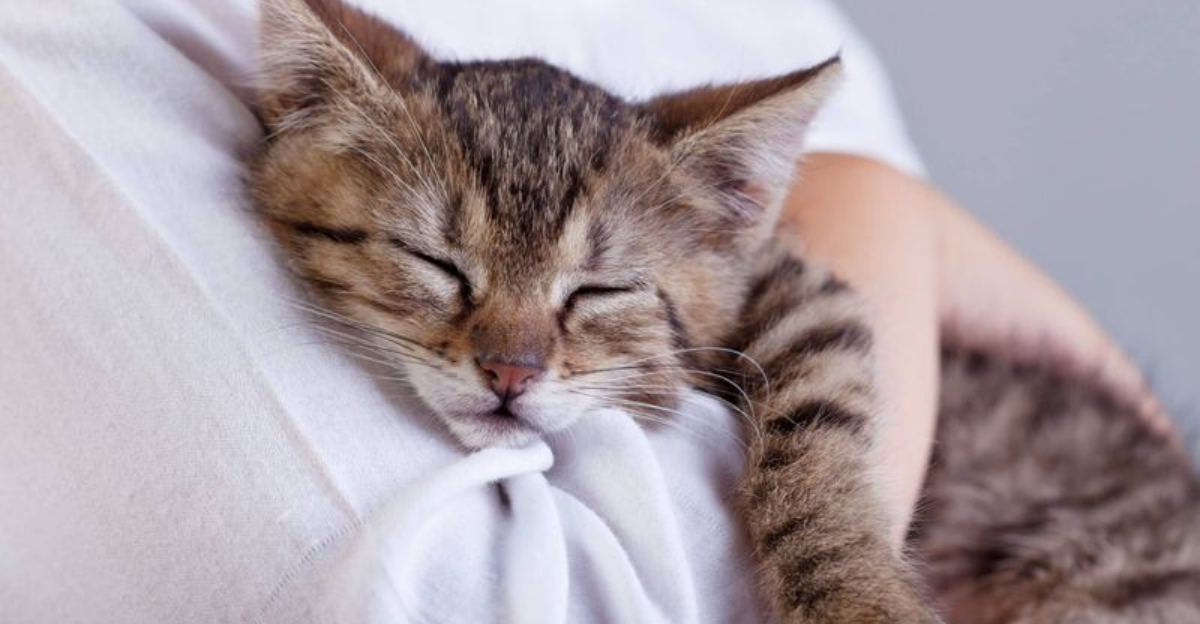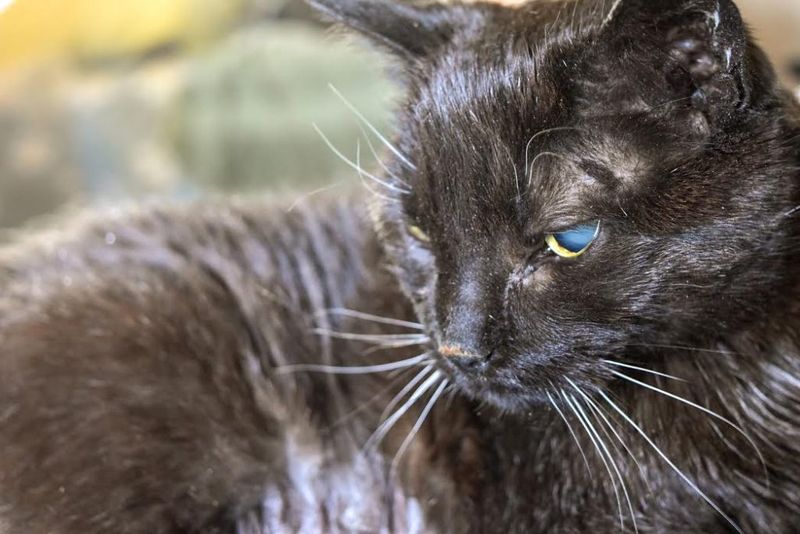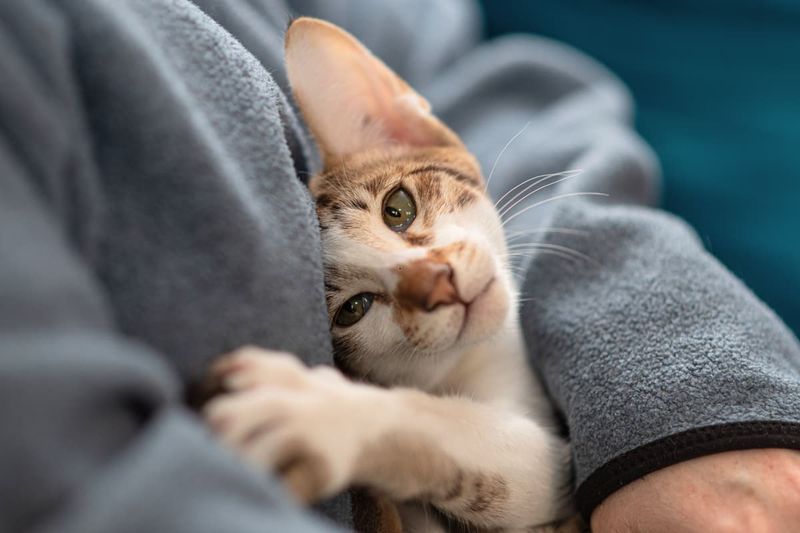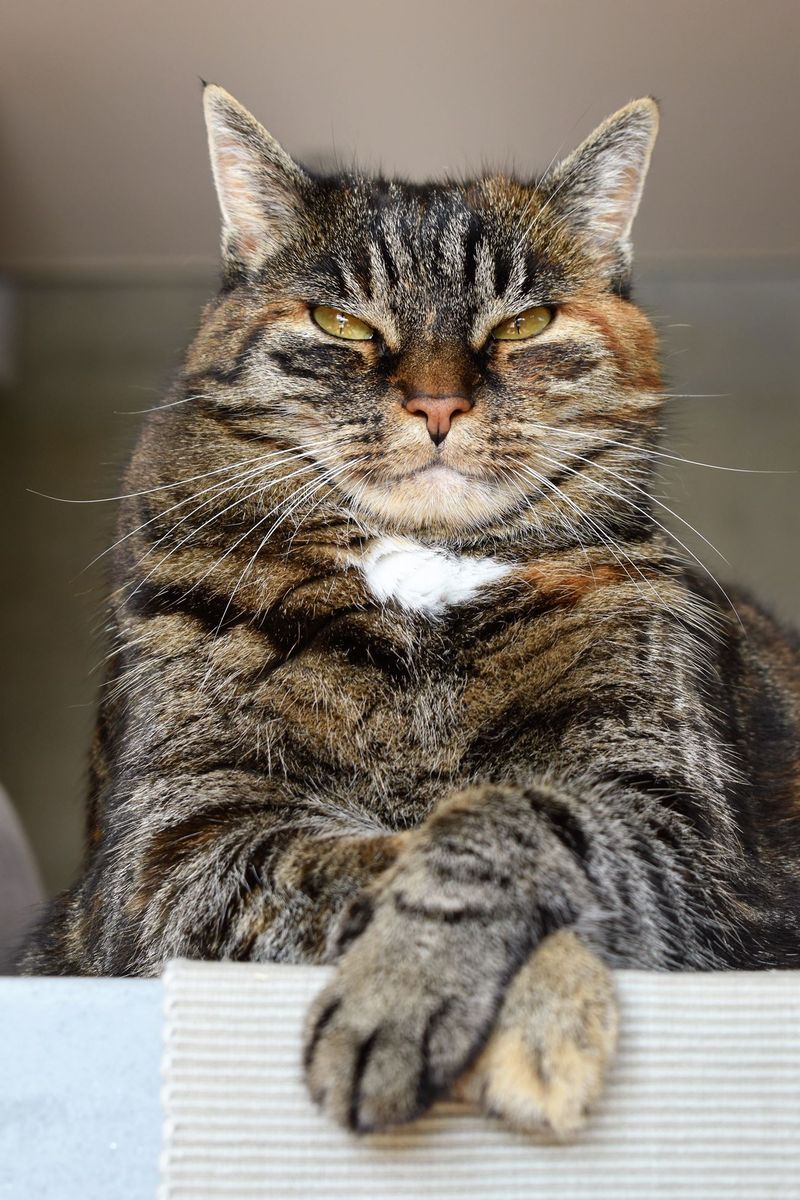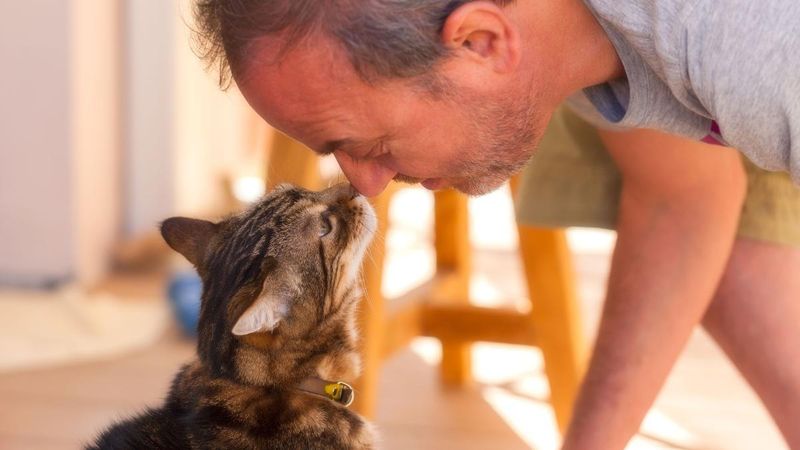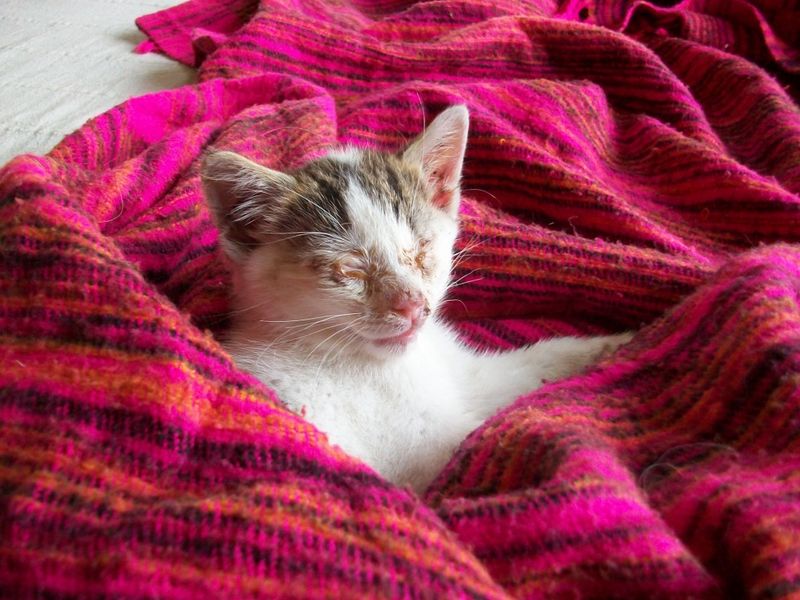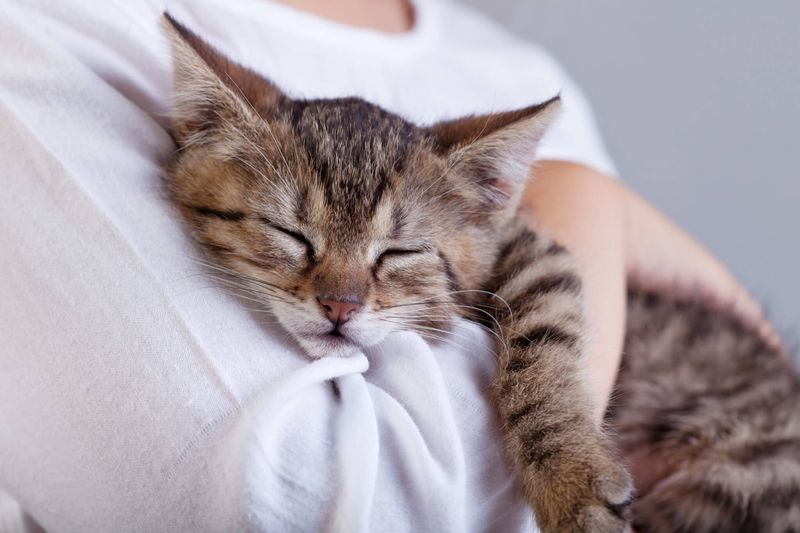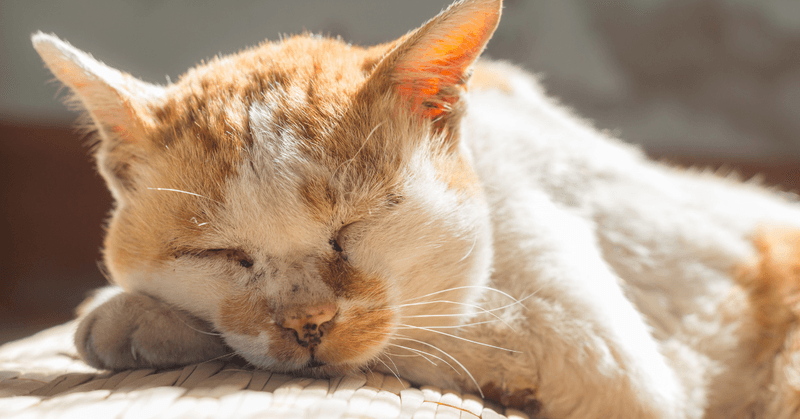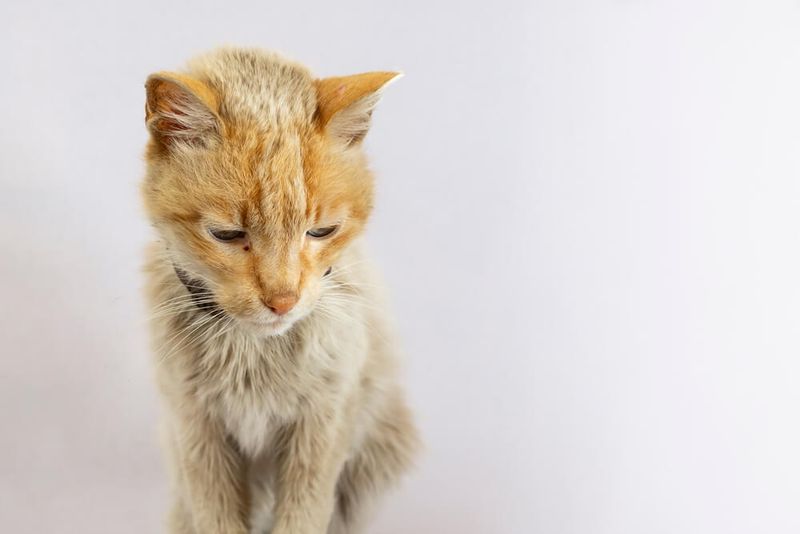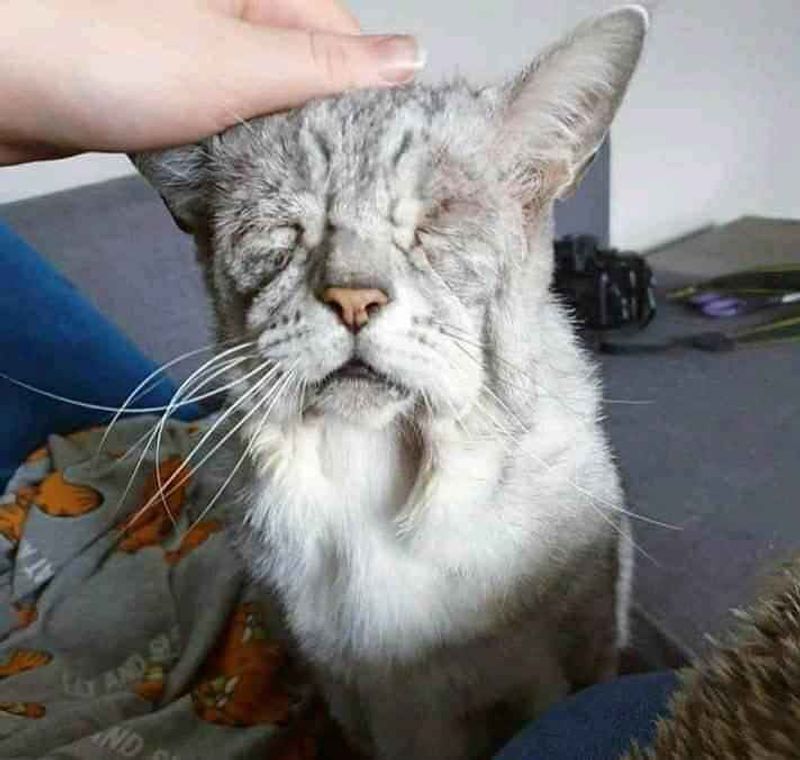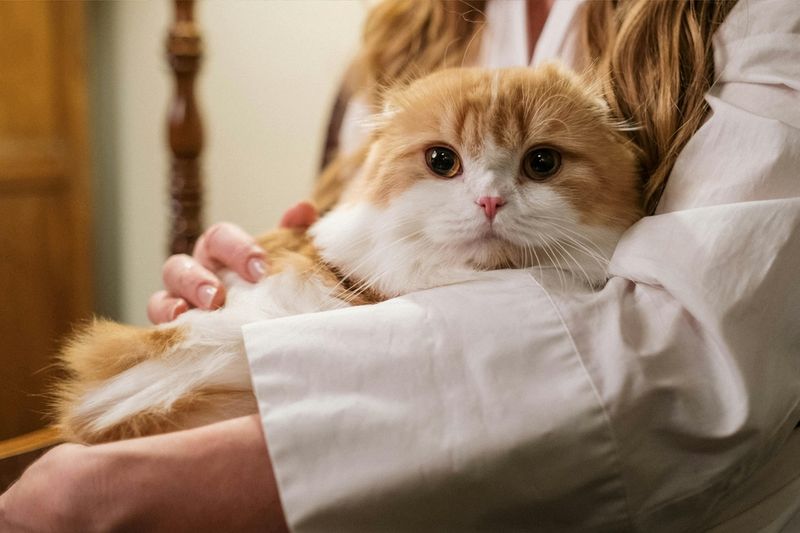📖 Table of Content:
- 1. “It was just a cat.”
- 2. “At least it wasn’t a child.”
- 3. “You can always get another one.”
- 4. “They lived a long life — you should be happy.”
- 5. “Aren’t you over it yet?”
- 6. “At least they didn’t suffer too long.”
- 7. “It’s not like they were a person.”
- 8. “You should be glad they’re in a better place.”
- 9. “I know how you feel — my hamster died when I was ten.”
- 10. “At least you don’t have to deal with the litter box anymore.”
- 11. “They were getting old anyway.”
- 12. “Maybe it’s for the best.”
- 13. “You shouldn’t be this upset over an animal.”
Losing a cat is a deeply personal and often heartbreaking experience. For many people, a cat isn’t “just a pet” — it’s a companion, a source of comfort, and a cherished member of the family. When that bond is broken, the grief can be intense, and navigating the emotional aftermath can feel overwhelming.
In moments like these, the support of friends, family, and coworkers becomes crucial. Unfortunately, even the most well-meaning people sometimes say things that hurt more than they help. Whether it’s an awkward attempt at comfort or a poorly timed joke, words have the power to either soothe or sting — and when someone is already in pain, the wrong comment can deepen the wound.
Some of these may sound harmless or even compassionate on the surface, but they often invalidate the grief that cat owners are experiencing. If you truly want to support someone going through pet loss, knowing what not to say is just as important as knowing what to say.
1. “It was just a cat.”
At first glance, this may seem like an attempt to minimize pain in order to help. In reality, it invalidates a deeply emotional bond that often spans years or even decades. To the grieving person, their cat was a best friend, a source of daily joy, and a constant companion. Dismissing that relationship implies that their feelings are exaggerated or misplaced. Few things are as isolating as having your grief belittled. Pets are not “just animals” to the people who love them — they are family. Recognizing the depth of that bond is the first step toward offering real support.
2. “At least it wasn’t a child.”
Comparing losses is never helpful and often deeply hurtful. This phrase suggests that there’s a hierarchy of grief, where pet loss somehow doesn’t count. For someone in the middle of mourning, this can come across as cold and judgmental. Everyone processes grief in their own way, and pain is not something that can be measured or ranked. Minimizing their sorrow only adds guilt to the heartbreak they’re already carrying. It’s possible to empathize without needing to make comparisons. Respect for their unique experience is far more meaningful than a misguided attempt to provide perspective.
3. “You can always get another one.”
Although this might sound like a hopeful suggestion, it misses the emotional depth of what’s been lost. Each cat has its own personality, quirks, and history with its human — none are interchangeable. Saying this reduces a beloved companion to a replaceable object. For the grieving pet owner, the thought of “replacing” their cat can feel offensive and dismissive. A new cat, someday, might help heal the heart, but it will never be that cat. Grief needs time and space, not quick fixes. Compassion means allowing them to feel the full weight of their loss without rushing their recovery.
4. “They lived a long life — you should be happy.”
Longevity doesn’t erase the pain of loss. While it’s true that many people wish for more time with their pets, the end still brings sorrow. Telling someone how they should feel rarely lands well, especially in a moment of mourning. Gratitude and grief can exist side by side — it’s not one or the other. A long life doesn’t make saying goodbye any easier. Often, years of shared memories only deepen the ache when that presence is suddenly gone. Acknowledging their sadness while celebrating the time they had is a more compassionate approach.
5. “Aren’t you over it yet?”
Commenting, “Aren’t you over it yet?” imposes an unrealistic timeline on grief, which is a deeply personal process. Everyone heals at their own pace, and pressuring someone to ‘move on’ can feel alienating. It suggests their feelings are invalid or excessive, which may lead to emotional isolation. Offering patience and understanding is vital, allowing them to share their journey without judgment. Encourage reminiscing about joyful memories, and reassure them that it’s okay to feel however they do for as long as they need. This approach fosters a supportive environment for healing.
6. “At least they didn’t suffer too long.”
Though this may seem like a silver lining, it can come across as emotionally tone-deaf. The loss itself is still raw, and pointing out “lesser suffering” doesn’t make the absence easier to bear. In some cases, the pet owner may be struggling with guilt or trauma around the final days, making this comment even more painful. It’s not always comforting to have someone try to put a positive spin on tragedy. Empathy means sitting with someone’s pain, not deflecting it with logic. Grief isn’t solved by comparisons or quick reassurances. Instead, gentle presence and a listening ear can make all the difference.
7. “It’s not like they were a person.”
Statements like this create a false divide between human and animal grief. For many people, the death of a pet can be just as devastating as the loss of a close relative or friend. The emotional connection isn’t defined by species — it’s defined by shared love, trust, and time. Devaluing that relationship only isolates the grieving person further. Pet parents often experience deep heartbreak, and this kind of remark suggests their pain is somehow illegitimate. Kindness means honoring the bond they had, no matter what form it took. Every relationship deserves respect, including the ones with fur and whiskers.
8. “You should be glad they’re in a better place.”
While this may come from a spiritual or comforting place, not everyone shares the same beliefs. Offering this kind of sentiment without knowing the person’s perspective can feel presumptuous or dismissive. The mourner may not be ready to think about peace or afterlife — they’re focused on the absence. This phrase often attempts to bypass grief rather than sitting with it. Genuine support doesn’t need to explain the loss, just to acknowledge it. Being present in their sorrow is far more powerful than trying to reframe it. Sometimes, silence and empathy are the greatest gifts.
9. “I know how you feel — my hamster died when I was ten.”
Although sharing personal loss can be a bridge to empathy, poor comparisons can create emotional distance. Equating a childhood pet with a lifelong companion often diminishes the weight of the grief being felt. This kind of response unintentionally centers the speaker’s experience rather than the mourner’s. What’s meant to connect can instead come off as dismissive. Instead of shifting the focus, it’s more meaningful to simply listen and offer space. Not every comforting gesture needs a personal anecdote. Validation often matters more than shared experience.
10. “At least you don’t have to deal with the litter box anymore.”
Trying to inject humor or practicality into grief can backfire spectacularly. What was once a chore might now be a painful reminder of absence. Even mundane tasks become emotionally loaded after a loss. Joking about it may be intended to lighten the mood, but it can come across as insensitive or flippant. Not every moment calls for levity — especially not when someone is in mourning. Emotional pain deserves space, not punchlines. Sometimes, silence speaks more kindly than a misplaced joke.
11. “They were getting old anyway.”
Age doesn’t soften the blow of loss. Watching a pet age is difficult, and knowing their time is limited doesn’t make goodbye any easier. This comment suggests inevitability as if that should dull the heartache. In truth, knowing a beloved cat was near the end often deepens the sense of anticipatory grief. No matter how prepared someone thinks they are, the final moment still cuts deep. Compassion means acknowledging the pain, not dismissing it with logic. Letting someone grieve without minimizing the cause is an act of real support.
12. “Maybe it’s for the best.”
This phrase tries to offer closure — but often comes across as emotionally cold. Even if euthanasia was involved, the decision is rarely clean-cut in the owner’s mind. People carry guilt, doubt, and pain long after making those calls. Hearing that it was “for the best” can invalidate that inner conflict and grief. It erases the complexity of loss and attempts to simplify something deeply personal. Better than offering conclusions is offering companionship. Being present without answers is sometimes the most healing thing you can do.
13. “You shouldn’t be this upset over an animal.”
Few statements cut deeper than this one. It suggests that grief over a pet is irrational or excessive, adding shame to sorrow. The truth is, emotional bonds with animals are often incredibly profound — full of daily rituals, comfort, and unconditional love. Dismissing that connection shows a fundamental misunderstanding of how deeply people love their pets. Mourning is personal, and no one has the right to dictate what level of sadness is acceptable. Offering understanding instead of judgment creates space for healing. Everyone deserves to grieve without being told their pain is too much.
